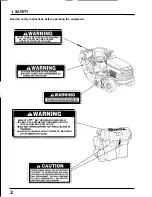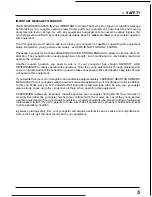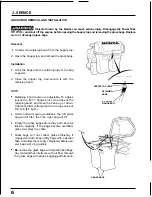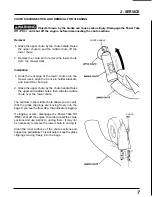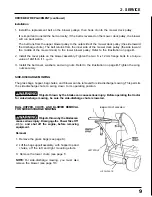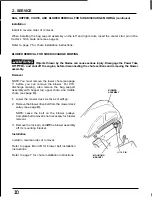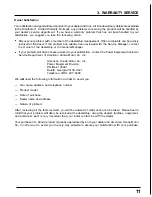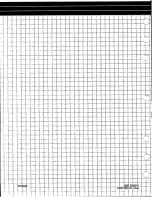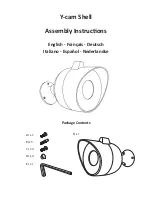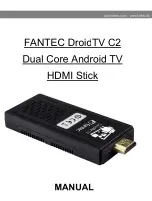
1.
SAFETY
Blade Hazards
The blades are sharp and turn
at
high speed. Accidental contact can cause serious injury.
Keep hands and feet away from the mower deck while the engine is running.
Disengage the Power Take Off (P.T.O.), and stop the engine, before performing any inspection or
maintenance.
Wear heavy gloves to protect your hands from the blades when cleaning out the mower deck, or when
inspecting or replacing the blades.
Thrown Object Hazards
Objects
hit
by the blades can be thrown with-great force. Thrown objects may cause serious injury or
property damage.
Before mowing, clear the lawn .of sticks, stones, dog bones, and other litter and loose objects. Mow
only in daylight, or in
areas
a t
night,
so
you can see
and
avoid objects in the grass.
Before operating the tractor, be sure the hopper top, grass bags, and grass bag chutes are in place,
or that the side-discharge chute is down.
Disengage the Power Take
Off
and
shut
off
the engine, before opening the hopper top, or removing
and installing grass bags and chutes.
Disengage the Power Take Off (P.T.O.) to stop the blades before crossing a gravel driveway or any other
area with loose stones.
Broken pieces thrown from worn or damaged blades can cause serious
injury.
Always inspect the blades
before using the tractor.
Always inspect the mower deck and blades for damage after striking a foreign object. Repair or replace
any damaged parts before continued use Always replace bent blades; do not attempt to straighten them.
Fire Hazards
Dry grass and leaves are flammable.
An
accumulation of
dry grass
and leaves
around
the
engine,
the
exhaust system,
or
on top of
the
mower deck (especially around the pulleys) may ignite.
Always empty the grass bags when you finish mowing, even if they are not full. Stored
lawn
clippings
are a fire hazard.
'4




